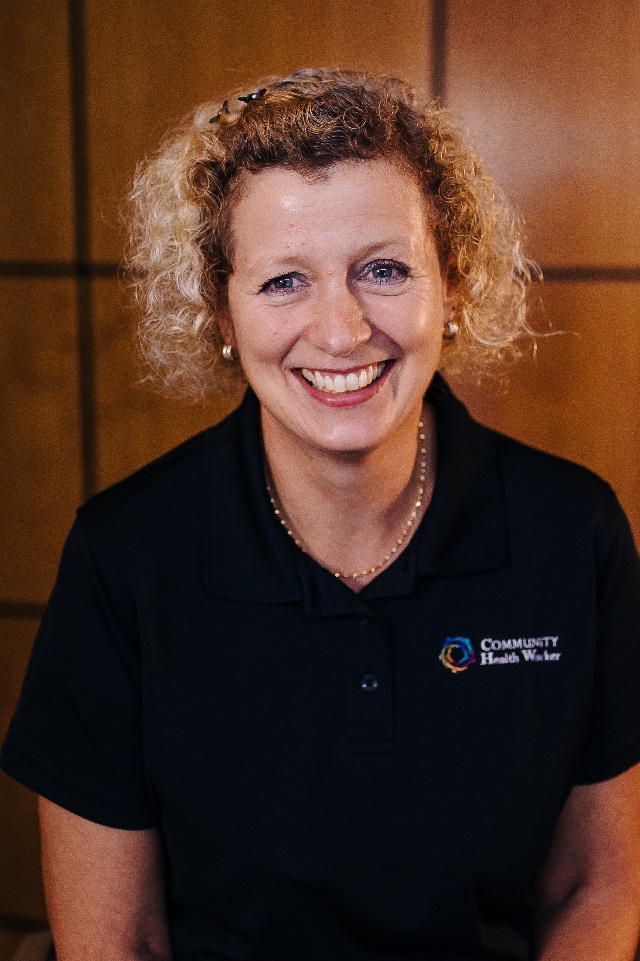
From her first job as a dental assistant in her native Germany to her current role as a community health worker in Danville, Virginia, Martina Tatum is at ease building relationships with those she serves. Martina is one of four community health workers (CHWs) funded by a government grant at Gateway Health who work alongside six additional CHWs from Piedmont Access to Health Services in the rural region of southern Virginia and northern North Carolina. Many of those she helps are insured by Medicaid, Medicare or are dual-eligible beneficiaries, and some have no insurance. Often they must choose between buying food or paying for a doctor visit or medication. Others she works with face issues with housing or live with a disability that prevents them from accessing transportation or other resources. Martina, a member of the Health Quality Innovation Network (HQIN) Patient and Family Advisory Council, recently shared her experience supporting the underserved members of her community.
Describe your role as a community health worker.
As a community health worker (CHW), I connect people with local resources such as a food bank or a church to address food insecurity or to financial resources for people who face unemployment or have a disability. I also help people with chronic illnesses like diabetes or high blood pressure to receive health education, and I sometimes serve as an advocate for my clients at their doctor appointments. Many of the people I work with will not ask questions during an appointment because they feel intimidated or do not understand what the doctor is saying. I have been with clients who are not able to read or write and leave a doctor’s office or the hospital with a stack of papers that are never read.
What led you to a career in health care?
I was a dental assistant in Germany for 26 years before immigrating to the United States. It was difficult at first to find employment because my job references were in Germany, but I was lucky to find a job in Michigan working in a group home for people with health and mental disabilities. I was happy to be working in health care even though it was something different. When I moved to Danville, I worked in a day program for adults with developmental disabilities and was encouraged by my colleagues to pursue my current position.
What do you enjoy most about being a community health worker?
The best part is knowing I have made a positive impact on someone’s life and that person is doing better because I helped them get the support they needed. Maybe that person can stay out of the hospital because of my help or be living healthier or having a better life because they have a new apartment. That makes it worth it.
Have you been able to work during the COVID-19 pandemic?
Not in person, unfortunately. I have been able to work over the phone with my clients, but that is not as effective. Fortunately, our CHW program partnered with a community medic who visits clients with extreme health challenges. I am also able to have food sent to someone who needs it because our food pantry is now offering delivery.
How does your perspective working with an underserved population contribute to the Health Quality Innovation Network Patient and Family Advisory Council?
If someone is underserved, they also are underrepresented which means they do not have a voice, so I am trying to be that voice for them.
